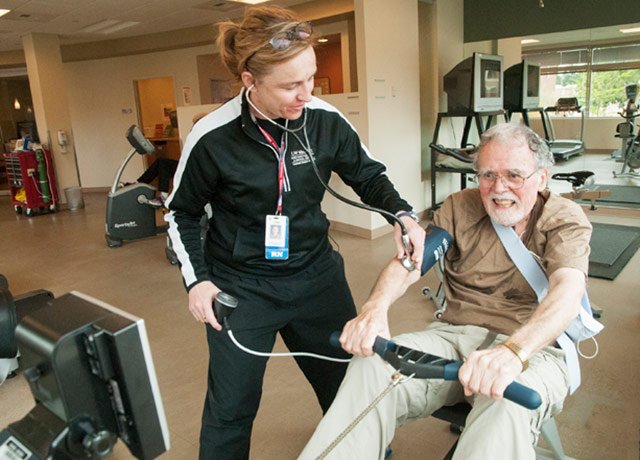According to recent studies, getting heart failure patients into cardiac care earlier rather than later, after hospitalization, is linked to a positive prognosis.
Attending Cardiac Rehab Soon After Cardiac Surgery Aids In A Speedy Recovery
According to cardiologist Dr. Benjamin Hirsh, who was not involved in the current study, cardiac recovery services often expect patients to be healthy for 6 weeks after a hospitalization.

According to Hirsh, who manages preventive cardiology at Northwell Health’s Sandra Atlas Bass Heart Hospital, Manhasset, New York, this research defies this law by enrolling patients in cardiac rehabilitation as soon as they leave the hospital.
He observed that patients who were randomly assigned to early cardiac therapy had more flexibility and fewer symptoms of sadness. Through further study, he believes that these advantages will lead to higher mortality and fewer hospitalizations.
The new results have been presented on Sunday at the American College of Cardiology’s simulated meeting and were also printed simultaneously in the New England Journal of Medicine.
One of the causes which are leading to death in the United States is cardiac arrest. It happens when a damaged heart can’t pump blood as well as it used to. Shortness of breath, nausea, sore muscles, and a fast pulse are all indications of heart failure.
The new research was led by Dr. Kitzman, who is a professor of cardiovascular medicine at Wake Forest School of Medicine, Winston-Salem, N.C. His staff observed the progress of 349 heart failure patients.
Patients were usually very sick, with additional medical disorders, such as diabetes, obesity, elevated blood pressure, cardiovascular disease, or kidney disease. Kitzman and colleagues discovered a lack of control, stamina, and coordination, as well as a loss of resilience, in older patients with heart disease in a previous study.
Researchers think that heart recovery treatment assists in changing all this. To find out, they devised personalized fitness routines aimed at optimizing balance, stamina, agility, and endurance.
There was one significant exception from the conventional approach, which was patients, started the program whilst in the hospital, rather than waiting for regular rehab, which begins six weeks after discharge. Patients who were discharged from the hospital attended therapy appointments 3 days per week for 3 months.
Patients in the research project improved their physical functioning and general quality of life compared to those who underwent standard cardiac rehab, according to the researchers.
There were also changes in patients’ perceptions of their health condition and the prevalence or absence of depression.
Furthermore, six months after the survey, more than 80% of the patients reported that they were still performing their recovery exercises.
Early and more customized person-specific approaches to heart failure rehab hold tremendous promise for optimizing results for this common but complicated disorder that is one of the leading causes of hospitalization for older people, according to Dr. Hodes, who is the director of the National Institutes of Health, in a statement.
According to Hodes, these findings reflect promising steps in improving health and quality of life and physical function for the millions of elderly Americans who experience cardiac arrest each year.
Dr. Marrick Kukin, who is the director of heart failure services at Lenox Hill Hospital in NYC, after reading through the results, called the research important and well designed, but he pointed out one disappointing result.
It is encouraging that this research demonstrates a positive influence on physical function, but it is disappointing that it does not display a substantial impact on a factor that clearly affects the patient care system, which is readmission to the hospital, according to Kukin. It is unclear who would reap the most from intensive physical rehabilitation.
The study team intends to dig further into these and other topics by enrolling more heart failure patients in wider, longer-term studies with a greater range of participant subgroups in the future.
